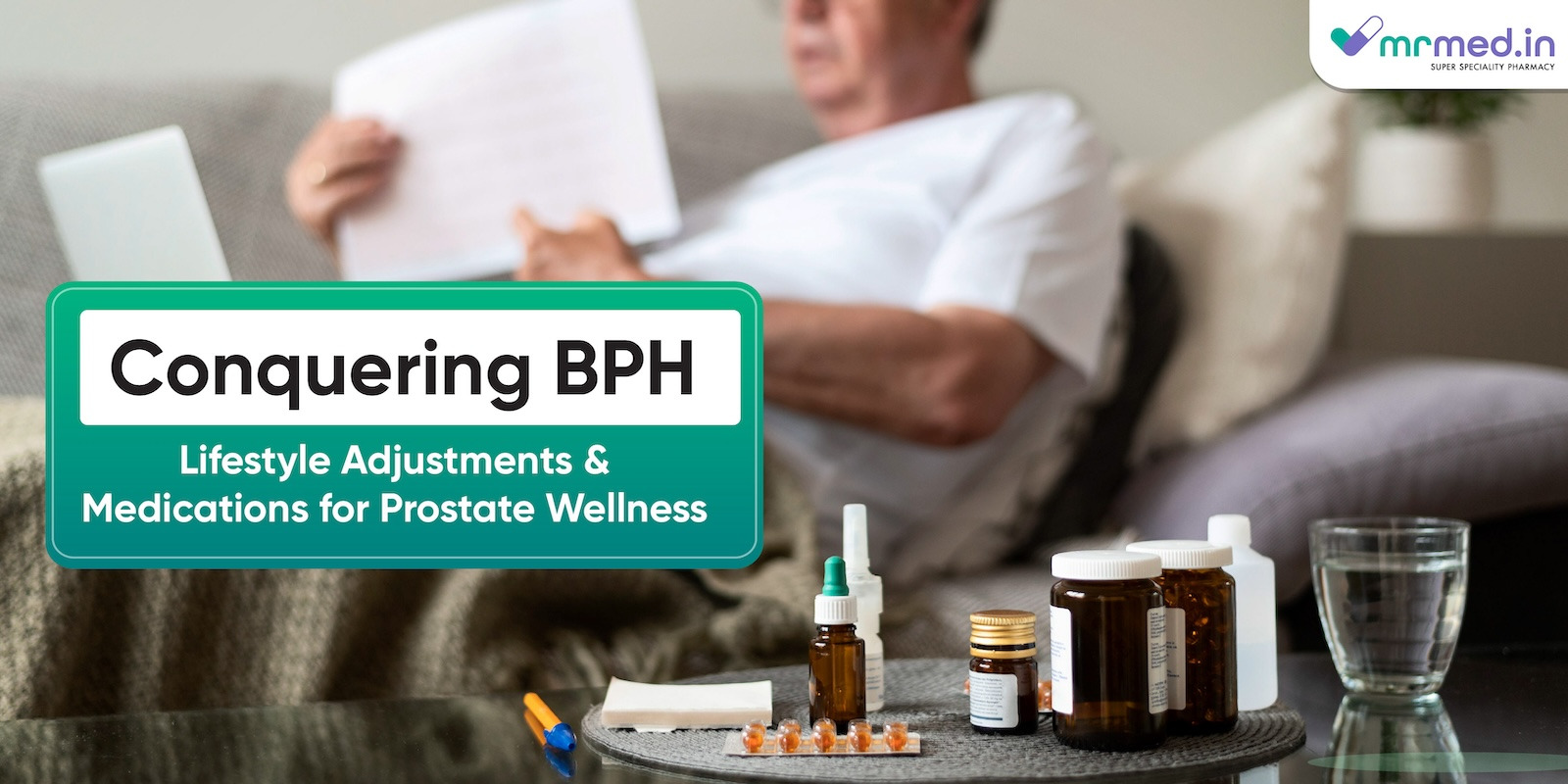An enlarged prostate gland can make it hard for someone to urinate, affecting their daily life. This might be a sign of benign prostate hyperplasia. Treatment options include watchful waiting, taking medicine, having minor procedures, or getting surgery. Making changes in lifestyle can also help improve symptoms. Let us explore this condition in detail and how it is managed.
What is Benign Prostate Hyperplasia?
Benign prostate hyperplasia (BPH) is when the prostate gland gets enlarged and may make it hard to urinate. This condition, also called an enlarged prostate, only affects men. About 8% of men aged 31 to 40 have BPH, and this number rises to over 80% in men older than 80.
What are the symptoms of BPH?
BPH, or an enlarged prostate, usually starts causing symptoms after age 45. The most common symptoms include:
- Dysentery, particularly at night
- A urine stream that starts and stops is weak or hesitant
- Frequent urges to urinate
- Dribbling or leaking after peeing
These symptoms usually develop slowly and might get worse over time. However, some men with a larger prostate may have few or no symptoms, while others might find that their symptoms stay the same or even get better over time. Some men are not bothered much by their symptoms, but others find them very troubling.
In a few cases, if BPH is not treated, it can lead to a condition where a man cannot empty his bladder at all. This problem, called urinary retention, becomes more likely as men get older and their symptoms increase.
But these symptoms can also be caused by other health issues, such as prostate or bladder cancer, kidney stones, or an overactive bladder, which makes you feel a sudden, strong urge to urinate.
What are the treatment options for BPH?
Treatment for BPH can help with urinary symptoms. There are different options, like medicines and surgery.
If your BPH is mild, you might not need treatment right away. Doctors often suggest waiting and watching to see how your symptoms change over time. But if your symptoms are bothering you a lot, or if they are moderate to severe, you might need treatment.
1. Lifestyle Changes
Lifestyle changes can also help. These include things like not drinking too much before bedtime or before going out, and cutting back on fluids that make you pee more often, like caffeine and alcohol. Some exercises to strengthen your pelvic muscles might help too.
2. Medications
It is important to avoid certain medications that can make your symptoms worse. These include some cold medicines with antihistamines or decongestants.
Medicines are often used to treat BPH. There are different types, like alpha blockers, phosphodiesterase inhibitors like Tadalafil, and alpha-reductase inhibitors. Alpha blockers can relax the muscles in your prostate and bladder, making it easier to pee. Phosphodiesterase inhibitors such as Tadaflo 5mg Tablets can help if you have both BPH and erectile dysfunction. Alpha-reductase inhibitors can stop your prostate from growing more or even shrink it.
In some cases, a combination of medicines might be needed, especially if your symptoms are severe or if you have a large prostate. Some people try herbal remedies like saw palmetto, but studies show they don't really help with BPH symptoms.
3. Surgical options
If medicines don't work well enough, there are surgical options. These include procedures like removing part of the prostate or using heat or light to shrink it. Some procedures are done through the urethra with a special scope, while others might involve more traditional surgery.
In rare cases, surgery to remove the whole prostate might be needed, especially if it is very large. Sometimes, a catheter placed directly into the bladder might be used temporarily to help with symptoms before surgery.
Conclusion
BPH is not a deadly disease when caught attention at its early stage. So, focus on lifestyle changes like exercising regularly, keeping your weight in check, eating healthy such as lots of fruits and veggies, and watching how much fat you eat. These simple changes can definetly help with BPH. Plus, these habits can also lower your chances of having erectile dysfunction, diabetes, and heart problems.




